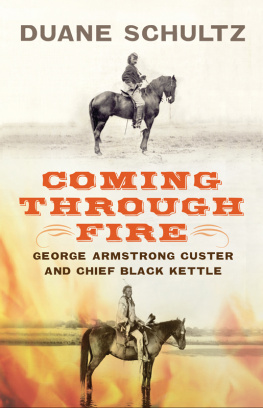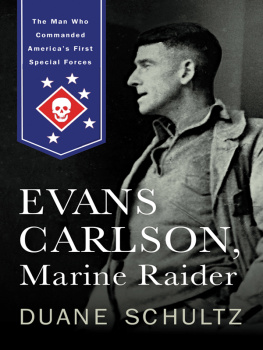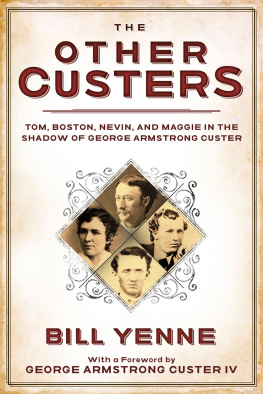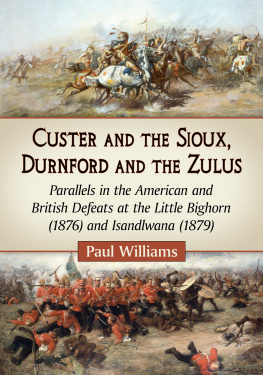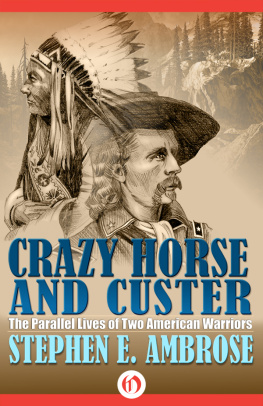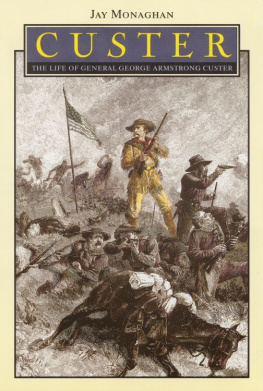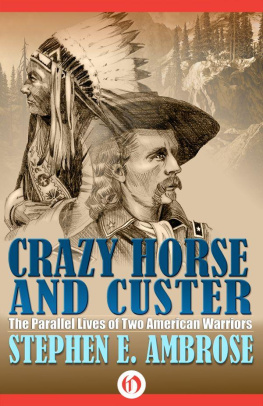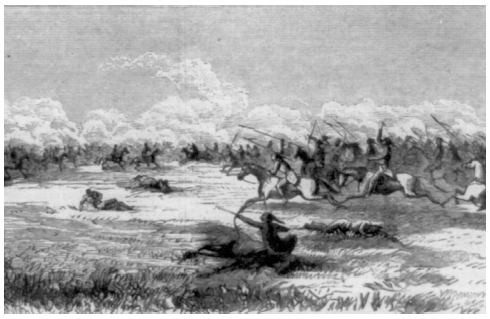Duane Schultz - Coming Through Fire: George Armstrong Custer and Chief Black Kettle
Here you can read online Duane Schultz - Coming Through Fire: George Armstrong Custer and Chief Black Kettle full text of the book (entire story) in english for free. Download pdf and epub, get meaning, cover and reviews about this ebook. year: 2012, publisher: Westholme Publishing, genre: Detective and thriller. Description of the work, (preface) as well as reviews are available. Best literature library LitArk.com created for fans of good reading and offers a wide selection of genres:
Romance novel
Science fiction
Adventure
Detective
Science
History
Home and family
Prose
Art
Politics
Computer
Non-fiction
Religion
Business
Children
Humor
Choose a favorite category and find really read worthwhile books. Enjoy immersion in the world of imagination, feel the emotions of the characters or learn something new for yourself, make an fascinating discovery.
- Book:Coming Through Fire: George Armstrong Custer and Chief Black Kettle
- Author:
- Publisher:Westholme Publishing
- Genre:
- Year:2012
- Rating:4 / 5
- Favourites:Add to favourites
- Your mark:
Coming Through Fire: George Armstrong Custer and Chief Black Kettle: summary, description and annotation
We offer to read an annotation, description, summary or preface (depends on what the author of the book "Coming Through Fire: George Armstrong Custer and Chief Black Kettle" wrote himself). If you haven't found the necessary information about the book — write in the comments, we will try to find it.
The Attack Along the Washita River, Custers Last Victory and the Action That Led to the Plains Indians United Quest for Retribution
The cold dawn of November 27, 1868, was the moment George Armstrong Custer had longed for ever since the Civil War ended three years before. It was also the moment Black Kettle of the Cheyenne nation had feared ever since he had survived the deadly attack on his people at Sand Creek, Colorado Territory. Custer, who gloried in battle, was no longer the national hero, the celebrity he had been in wartime. He was a forgotten man who had failed in his first Indian campaign the year before. He needed a resounding victory to resurrect the attention he craved, and the sleepy Cheyenne village along the banks of the Washita Riverironically near present-day Cheyenne, Oklahomaproved irresistible. Custer led his 7th U.S. Cavalry in an early morning charge that wiped out the encampment, killing those who resisted and some of those who fled. Black Kettles Cheyenne had signed documents of peace with the U.S. Government as they had done before Sand Creek, but once again that did not protect them. Custer ordered his troops to capture women and children and traveled with these prisoners as a way to shield his column from a retaliatory strike on their way back to their post. Called both a massacre and a battle, the action at the Washita River returned Custer to national prominence as the greatest Indian fighter of all.
Coming Through Fire: George Armstrong Custer and Chief Black Kettle tells the converging stories of a Civil War hero and a native warrior who met along the Washita River. Black Kettle had given up fightinghe had come through the fire and made his mark on treaty after treaty to try to save the Cheyenne and their way of life from the encroachments of the U.S. government and white settlers. He watched the government breach the terms of each treaty, yet he continued to work for a compromise, knowing that negotiations were the only way his people could survive. But the flood of wagon trains and settlements, the killing of the great buffalo herds, the new diseases and broken promises, political ambition, naked greed, and continuing restrictions on land, food, and shelter persisted. As the U.S. Army, including Custer, continued to attack and forceably move Indians to reservations despite treaties indicating otherwise, Black Kettles dreams of peace were shattered. He ended his life face down in the freezing waters of the Washita River, shot by one of Custers troopers. The greatest Indian fighter would not survive the Indian Wars either, cut down near the Little Big Horn River, in part for his actions against Black Kettle and the Cheyenne.
Duane Schultz: author's other books
Who wrote Coming Through Fire: George Armstrong Custer and Chief Black Kettle? Find out the surname, the name of the author of the book and a list of all author's works by series.

